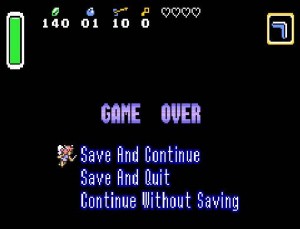For many dieters and health conscientious folk, “cheating” is an integral slice of mental sanity. After a week of eating so-called “clean” foods and adhering to a strict “diet,” fitness enthusiasts around the globe take reprieve in being able to acknowledge and indulge in their wildest cravings. Because of the mainstream popularity of The 4-Hour [...]
 For many dieters and health conscientious folk, “cheating” is an integral slice of mental sanity. After a week of eating so-called “clean” foods and adhering to a strict “diet,” fitness enthusiasts around the globe take reprieve in being able to acknowledge and indulge in their wildest cravings.
For many dieters and health conscientious folk, “cheating” is an integral slice of mental sanity. After a week of eating so-called “clean” foods and adhering to a strict “diet,” fitness enthusiasts around the globe take reprieve in being able to acknowledge and indulge in their wildest cravings.
Because of the mainstream popularity of The 4-Hour Body, cheat days are more prevalent than ever. Ferriss deems them a necessity to rebound hormone levels after days of dieting.
But, sadly, most cheat day fiascos end up hindering progress rather than enhancing it. So here are so ways to make sure that doesn’t happen.
WHY ALL CHEATS AREN’T CREATED EQUAL
Without getting fancy, under-eating triggers adaptations associated with minimal nutrient intake. So the body starts operating assuming a deprivation. Some processes, like muscle building, slow as the body “senses” the lack of consistent nutrients. “Cheating” resets things and stops the body from going too far into the “deprived” state.
As mentioned, The 4-Hour Body brought “cheating” to the mainstream world. But in the underground athletic fitness community, it’s been around for a while. Ferriss science-ified his recommended one cheat day per week by advocating “regular” breakfast, timed grapefruit juice intake, timed caffeine intake, special supplement use, and specifically timed intermittent workouts. If you’re interested in the details of his method, just check out The 4-Hour Body.
When it comes to food intake, there are no barriers on the Ferriss cheat day. As most dieters are starved for junk food, cheat days turn into an indulgence extravaganza. And therefore most people associate the concept of a “cheat day” with stuffing your gizzards with junk food. But this isn’t fully representative of “cheating.”
Let’s clarify some things.
- Cheating: Breaking your normal dietary rules or plan out of personal desire. In this sense, eating a boatload of “healthy” food can also be “cheating.” Hunkering down 10000 kcals worth of oats would likely be a “cheat” simply because of the quantity, regardless of how “clean” oats are thought to be.
- Cheat Meals: One meal in which cheating occurs. For instance, “My cheat meal is Sunday dinner, so I’ll have the cake then.”
- Cheat Days: Entire days in which cheating occurs. For instance, “Sunday is my cheat day, so I’ll eat donuts for breakfast, pie for lunch, and pizza for dinner.”
Now, there are different levels of cheating. For some, eating a small hunk of chocolate is a cheat meal. For others, it’s opening their mouth underneath a chocolate fountain. So let’s clarify cheat volume.
- Normal Cheat: Eating to satisfaction. Not stuffed. Not hungry.
- Stuffed Cheat: Belt loosening. Shouldn’t eat anymore. Not really discomforting though. Almost euphoric feeling. No regrets.
- Binging Cheat: Eating even though you are full. Mild discomfort. Regrettable. “I shouldn’t have ate that last slice of pizza.”
- Gorging Cheat: When binging goes wild. Being sick to the stomach. Self loathing to follow. “I want to throw up to relieve the pressure in my stomach.”
THE DOWNFALLS OF CHEATING – THE DARK DAYS
 No one is perfect. Cheating, in some capacity, is essential for everyone. Essential. But whether the cheat is a twelve egg omelette or twelve buffalo wings depends on discipline, goals, and philosophy.
No one is perfect. Cheating, in some capacity, is essential for everyone. Essential. But whether the cheat is a twelve egg omelette or twelve buffalo wings depends on discipline, goals, and philosophy.
Some can handle the cheat day mentality with moderation. For others, however, it becomes an uncontrollable spiral of regrettable habits very similar to binge drinking.
Small pieces of chocolate bars after meals become full blown desserts. Full blown desserts become sketchy meals. Sketchy meals become cheat meals. Cheat meals become cheat days. Cheat days become binges. Binges become gorges.
Not long ago, I fell into a pattern of gorging weekly. Every week, it got worse. Every week, I was filled with regret. I nicknamed this time period, “The Dark Days.” Below are some common symptoms.
1. Your entire week is spent plotting your cheat day. This wouldn’t be so bad except you eventually lose sight of what you live for. If the aim is to live a healthy life, what good is finding refuge in the single most “unhealthy” moment of the week?
And if this “unhealthy” moment makes you feel whole, you’re ultimately limiting what gives you the most joy in life in your attempts to be healthy. It’s backwards.
2. Every weekend becomes a gorge. Ferriss admits to limiting gorges to once per month. But in The Dark Days, it’s non-stop.
3. The day following your cheat day, you wake up dry mouthed, bloated, sick with regret, and full of self loathing. This is the cheat day hangover. It’s not fun.

4. You get stuck in a cycle of cheating, feeling guilty, and then under eating to compensate for the cheating. Then, just when you start feeling good again, another cheat pushes the reset button on the cycle.
WHAT YOU NEED TO KNOW ABOUT ME
 In 3 Reminders for the Skinny-Fat Ectomorph, I said that cheat meals = game over. But to this day, I cheat. The extent and magnitude of the cheat, however, isn’t quite like it was during The Dark Days.
In 3 Reminders for the Skinny-Fat Ectomorph, I said that cheat meals = game over. But to this day, I cheat. The extent and magnitude of the cheat, however, isn’t quite like it was during The Dark Days.
You can say this entire post is an accumulation of six months of experimentation, psychological toil, and some emotional anguish. It’s been a long road to get where I am, so learn from my past failures. The process wasn’t easy. Not everyone will face the same issues and have the same problems. For those that do, however, this information is invaluable.
At first, straying from the path of food cleanliness was difficult. I’m naturally one of those guys that thinks eating one malted milk ball instantly creates a third love handle. Being a former skinny-fat ectomorph, I don’t take this issue lightly. Gaining fat scares me. Like, “I just watched the movie Teeth,” kind of scared. So I just didn’t really cheat. And that lasted for a long time. Chips, chocolates, and most processed foods didn’t appeal to me. At all. I had no problem throwing away food that didn’t fit my normal intake. My emotional attachment was 100% cut.
Cheats started slow. Maybe a bit more of my normal food here and there. Maybe a slight indulgence after one meal, once per week. But then I found out about feasting and fasting. This method worked great for me for a long time, and I still think—for some people—it’s a kickass idea. But Monday’s, my fast day, became draining.
The feast – fast method is basically eating whatever you want one day, and then fasting the following day. So the fasts last 36+ hours. (An entire night, an entire day, and then another entire night.) This led me to overeat to the point of feeling like I had to fast. So as my feast day dwindled, I would intentionally put myself over the edge to ensure I was “full” enough for the fast that awaited.
This was likely what destroyed me. Every cheat day I told myself, “I’m not eating tomorrow, so I have to eat beyond my capacity todayto avoid miserable hunger pangs tomorrow.”
This grew. And grew. And grew.
Every week, I wanted to stop eating before discomfort. But it never happened. It only got worse.
Leftovers that normally were thrown away were forced down the hatch. I don’t know why either. Nothing changed about the confines of my cheat day, but I felt like I had to consume. At parties, I would flock to the cookie table. Months prior, however, cookies were an afterthought. So I took a long look at what I had become and where I wanted to go. Was the cheat meal to blame for this gap?
A NOTE ON FEASTING-FASTING
 In the name of transparency, I have to mention that the feast – fast method, although taking me down an unwanted path, worked 100% for its intention.
In the name of transparency, I have to mention that the feast – fast method, although taking me down an unwanted path, worked 100% for its intention.
I gained muscle. Hell, I even think I lost fat. I didn’t care to track it at the time, but I made some outrageous gains. This in itself was one of the reasons why abandoning it was difficult.
But the psychological baggage became too heavy, and it interfered with my summer life. (Tricking bloated and disgusted doesn’t end well.) If you’re interested in learning more, however, I suggest checking out John Romaniello’s Fat Loss Forever, in which his feast – fast method is included in a comprehensive plan. (In the interest of disclosure, this is an affiliate link, meaning if you click through and purchase, I get some schwag. Thanks for the support.)
HOW TO MINIMIZE CHEAT DAY DISASTER
Every Sunday, I battle the cheat day urges. Some days, my food challenge-esque portions and mindset get the best of me. (I’ve been known to tackle local restaurant food challenges.) But having since stopped the feast – fast method, I’ve learned to mitigate the damage, even if I do an outrageous food challenge here and there. Here are some of the strategies I use.
1. Stopping at stuffed
This is the most difficult of them all, but simply stop eating when you feel full. For those used to gorging regularly, this won’t work well. For instance, my feelings of satiety don’t kick in until 20-30 minutes after a meal. This means I eat. And eat. And eat. And by the time I sense fullness, it’s too late.
2. Make it a cheat meal
Ditch the cheat day. Adopt a cheat meal. Make it one and done. So take one sitting and acknowledge your cravings. But once you leave the table, end it. No “I’ll eat dessert later.” No “I’ll save these leftovers for later.” One sitting. One meal. That’s all.
3. Over hydrate
Waking up with dry mouth and a cheat day hangover sucks. Combat it by downing water by the bucketful the day of your cheat, especially during and after the meal. Drinking a bunch directly after the meal also kicks in satiety faster, which can prevent you from eating when you probably shouldn’t.
4. (W)hat (W)ould (J)ujimufu (D)o
It’s no surprise: I look up to Jujimufu of Tricks Tutorials. He has been the sole purpose for who and where I am. He seems to do everything “right.” So I abide by this motto: What Would Jujimufu Do?
Now, I’m not truly sure what he do. He could very well be by the cookie table, stuffing himself with sweet treats. But something tells me that most times he isn’t. So get some standards, have a role model, or make some kind of goal that prevents you from going overboard.
5. Cheat healthy by re-conceptualizing junk food

Get eighteen scoops of ice cream? Or create your own super awesome sautéed apple protein pudding concoction with a side of oatmeal crust bread? Perhaps a sexually satisfying serving of banana, whey, cottage cheese, and walnut “parfait?”
Find “healthy” alternatives to the junk foods you love the most. You would be surprised what you can whip up with oatmeal, peanut butter, fruit, protein pudding, whipped cream, cottage cheese, and dark chocolate.
5a. Cheat healthy by overeating good foods
People cheat to rebound hormone levels when dieting. But hormone rebounding is less about junk food and more about the total quantity of food. Overeating doesn’t necessarily mean pigging out on junk food. Just up the quantity of your normally eaten foods once or twice per week. Twelve egg pork omelette with a side of oatmeal crust bread, anyone?
6. Fill up on protein and green veggies
Eat a ton of lean protein and vegetables before your “cheat meals.” Cottage cheese, chicken, turkey, whey, and green veggies carry little caloric load and make you full quick. But beware. If you’re prone to gorging, you will find a way to pile food down the pipe regardless of how “stuffed” you are, so this can potentially backfire.
7. Train the day of
If you’re going to be eating a lot, why not train and hope that something comes of it? After all, maybe the calories will help with recovery? Or kick start some muscle growth?
8. Don’t try curbing every craving in one week
Pick one craving. Then satisfy it. You can always hit the next one the next week. If it’s something seasonal that won’t be around for long, get it while you can and save the other cravings for future weeks.
9. Learn How to Throw Away Food
This may sound stupid, but it truly deserves an entire post let alone one small section. Throwing away food is difficult. It’s a mind game. It’s a waste. And I have trouble doing it myself.
But think about the emotional impact and the end result.
If you throw it away, it’s in the garbage. Gone. You can’t see it. End of story.
If you eat it, it’s in your stomach. It makes you feel bad. But the end result is still the same: You can’t see it. It’s still gone. You just end up hating yourself.
Don’t obsess over it. Just toss it.
10. Eat Out
Go out for your cheat meal and don’t get a to-go box. Finish what you can in this one sitting and be done with it. While I’d much rather cook for myself, it’s easy to overcook and be stuck with mounds of leftovers. Not good.
11. Cheat less frequently
Think about cheating every other week instead of every week.
12. Cheat, but only during social affairs
This comes from a reader of the website, Rajat Desikan. He shared a unique idea: only cheat at social functions. Don’t go out of your way to plan something. But if an event comes up, enjoy yourself. The upside of this is that you won’t kill your social life. (And you won’t be perceived as that wierdo health freak. Although, that’s kind of a cool persona to play so bask in the role if you want to.) The downside of this is that if you have an active social life, you will be tempted to cheat often.
13. No buffets.
Another reader, Daniel Wallen, said he prefers buffets for cheat meals. But in my opinion, only those with the stones to stop at stuffed will do well at an all you can eat extravaganza. Although you can curb many cravings at once, I recommend steering away from buffets. They’re like proximity mines.
14. No trans-fats.
Even though cheats allow for indulgence, keep some standards. My cheat days were optimized when I voluntarily turned things away that didn’t fit my code of good health. This extended beyond cravings and was more about living a good life. One of these codes was avoiding fried and trans-fat foods. To this day, I rarely eat them. Cheat day or no cheat day.
15. Consider a fast.
This is a hark back to my feast – fast days, but full day fasting after a cheat day does work. It attacks the bloat head on, allowing you to mentally get back on track instead of depriving yourself for a week.
The feast – fast method requires a unique mentality in itself. (This is better served as a separate article.) But just know that it’s easy to get carried away once you adopt the “I need to jam two days of eating into one” mentality. Keep your wits about yourself with the above tips.
Alternately, you can do Brad Pilon, Eat Stop Eat style, twenty-four hour fasts two or three times per week instead of the one day fast crush. (Once again, affiliate link. Schwag. Thanks.)
GENERAL CHEAT RULES YOU MUST KNOW
 What does it all mean?
What does it all mean?
- Most people are better served with cheats that are simply “more” of normal food intake. In other words, take one or two meals per week and double or triple the portions.
For those of you that want to go the junk food route, here are some thoughts.
- Cheating works better for those dieting to lose weight because the subsequent starvation mentality that follows a cheat plays right into the calorie cutting mentality. But this only works if you’re actually following a diet that does restrict calories.
- For those looking to gain weight, that aren’t looking to gain a lot of fat, over-cheating is dangerous ground. People under eat the days following a hardcore cheat day to combat the bloat and hangover. This leads to a cycle of cheating – under eating – starting to feel normal – cheating again – etc. More often than not, this leads to sub-optimal nutrition throughout the training week. End result being that most people fail to gain any muscle because they’re too concerned with mitigating the cheat day damage.
- Save the hardcore binges for once per month. Like I said, I love food. I eat food. A lot of it. I’ll always be into food challenges. The key is to reduce the frequency of binging. By doing this, you can also employ more drastic techniques—like fasting—to combat the hangover without the immense psychological hit.
- For the most part use moderation on your cheat day. Stop at stuffed.
- Have standards. Cheat meals and cheat days where “anything goes” is usually a bit too loose of a mentality. Have some stones and set some standards. Save fried or trans-fatty foods to your once per month binge. You are in this for health after all.
CONCLUSION
Cheating helps some dieters keep their sanity. Avoiding sweets for life in favor for raw vegetables isn’t exactly an appealing trade to most.
But there’s a darkside to cheating. A side that leads people down a path of living for junk and sweets. Is it a good way to live?
I’m not so sure.
+++++
What do you think?
To cheat or not to cheat? I’d love to get your opinion in the comments section below. You know I always reply, so I’ll be waiting for your answer.
